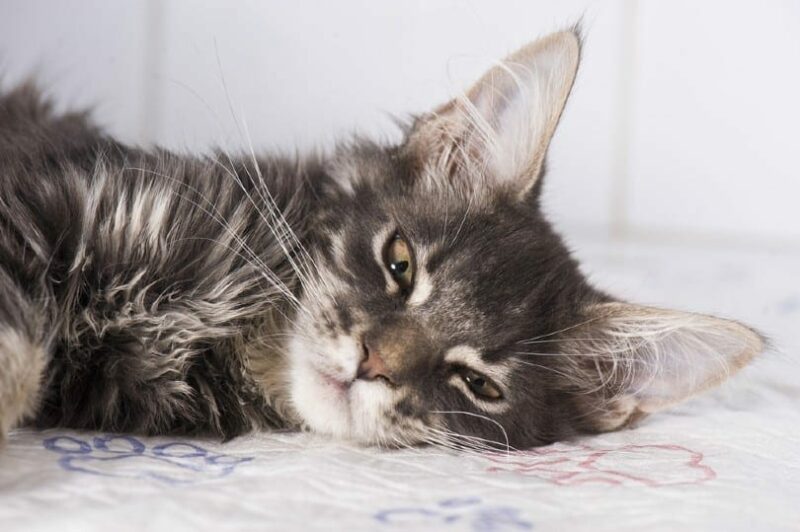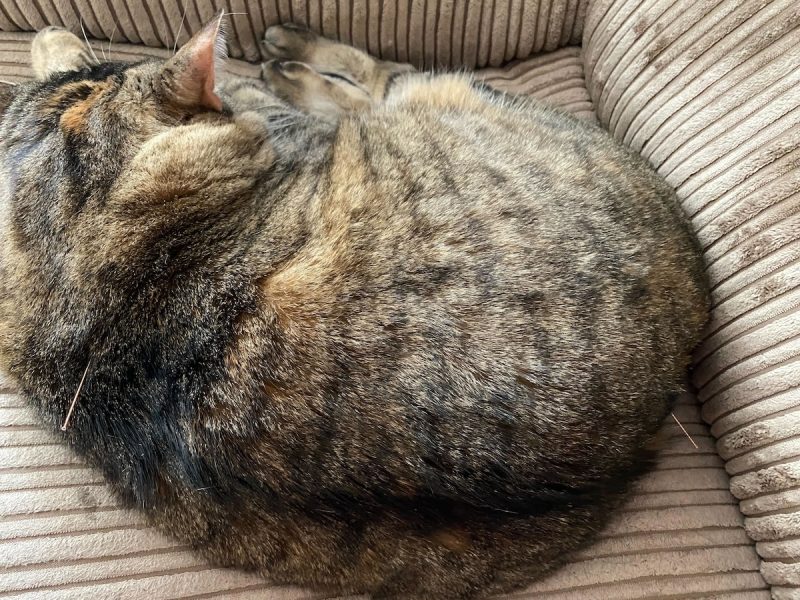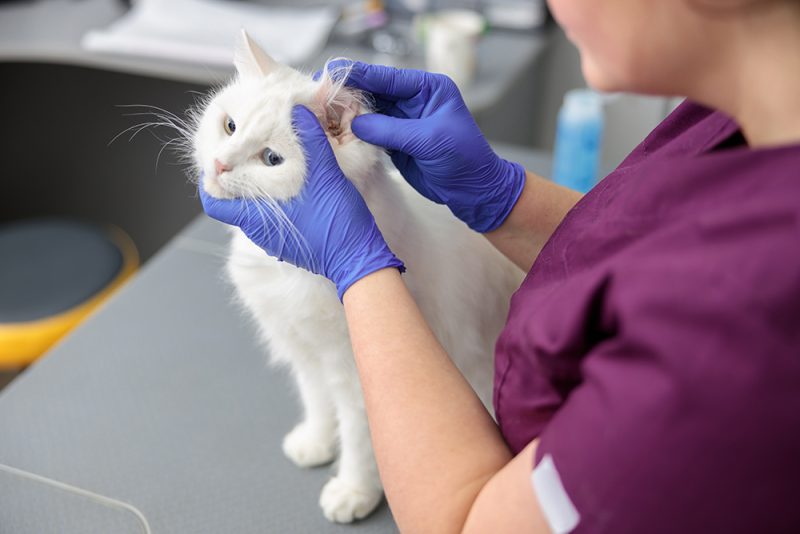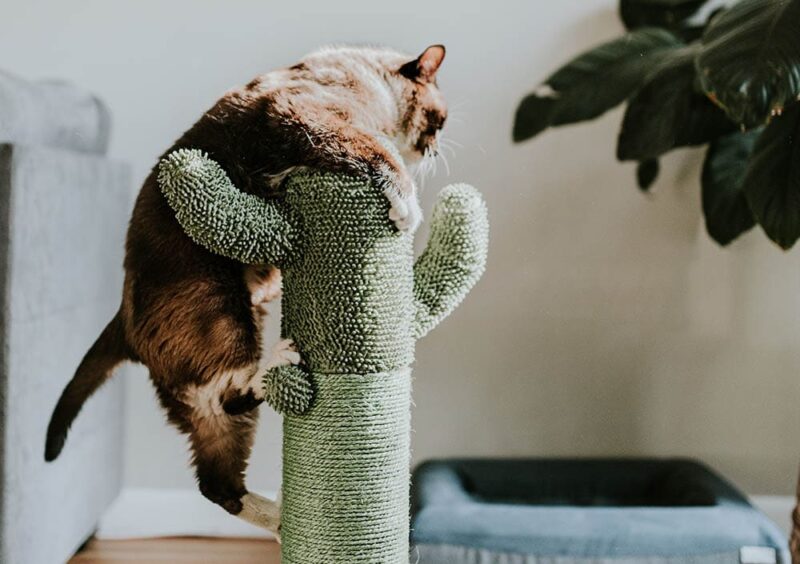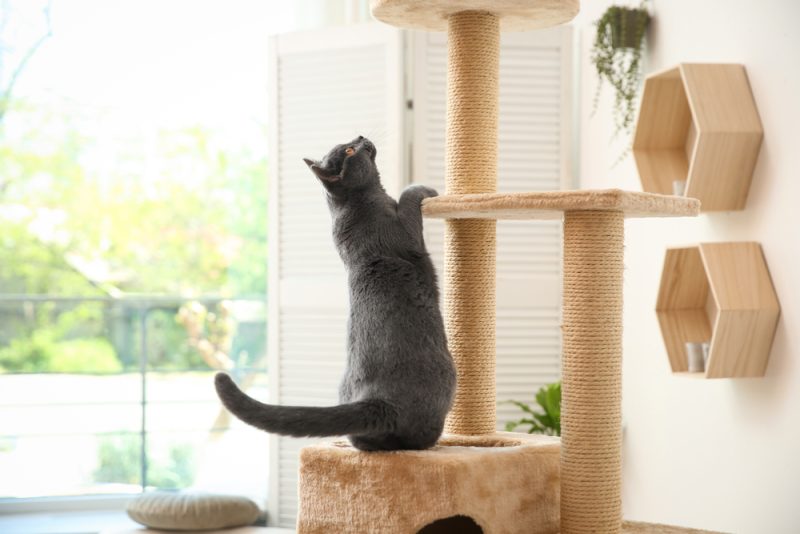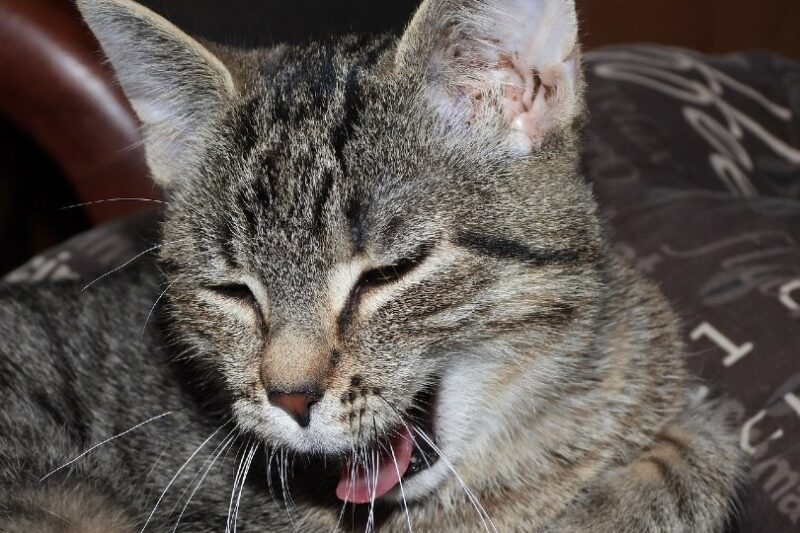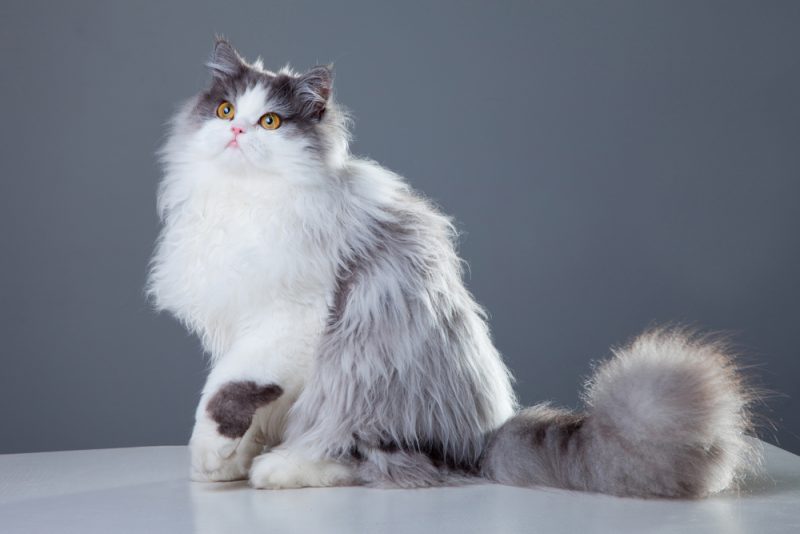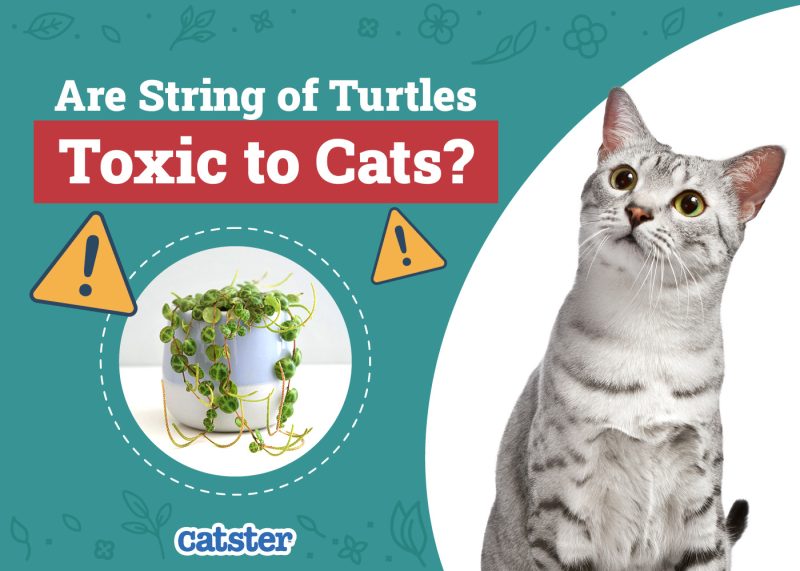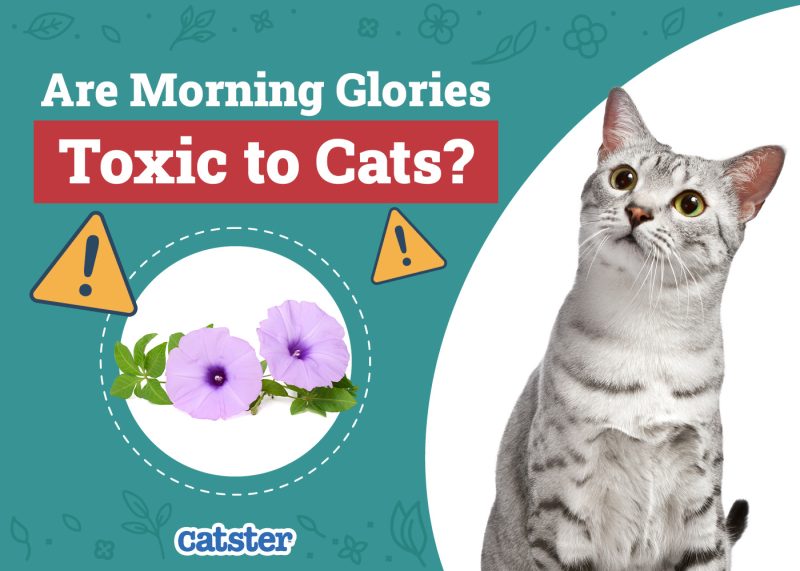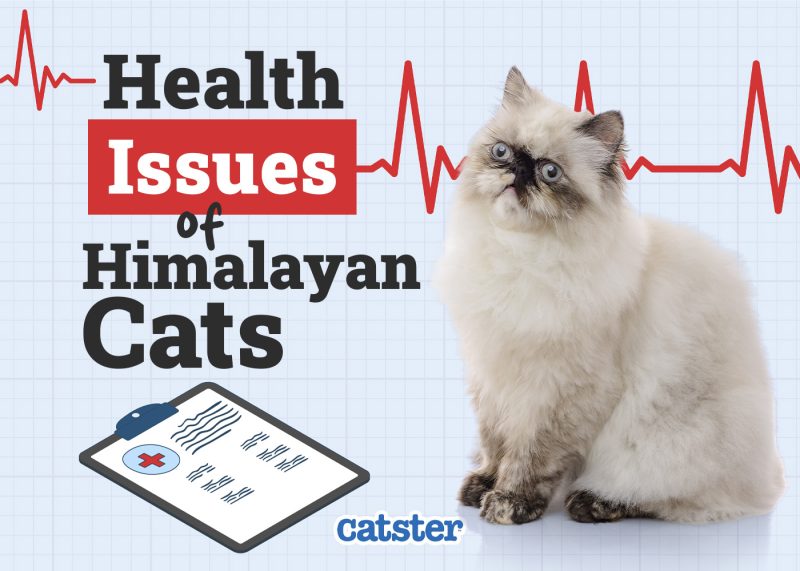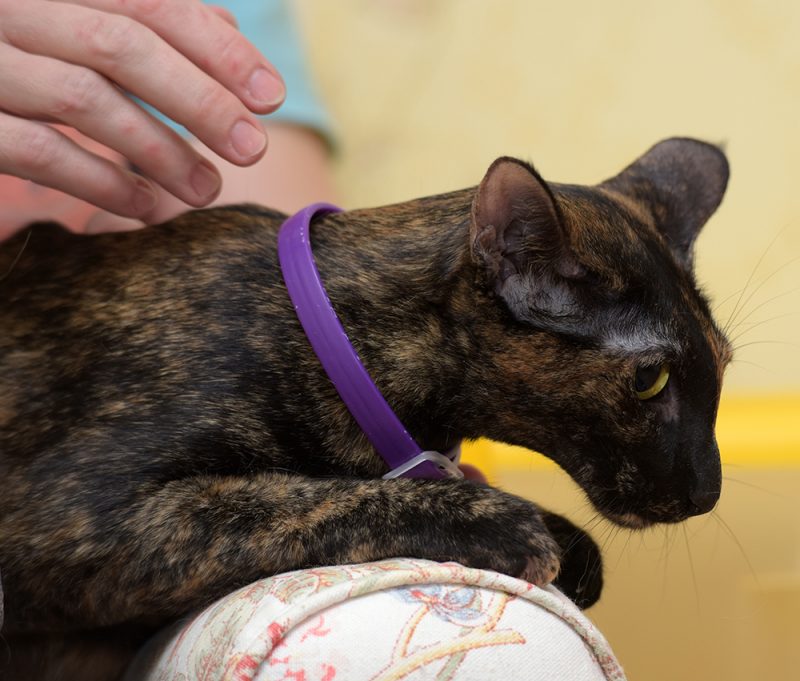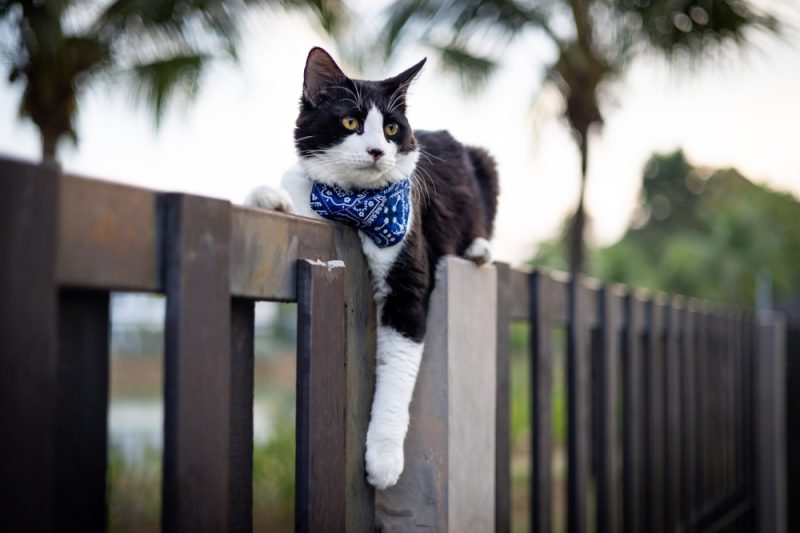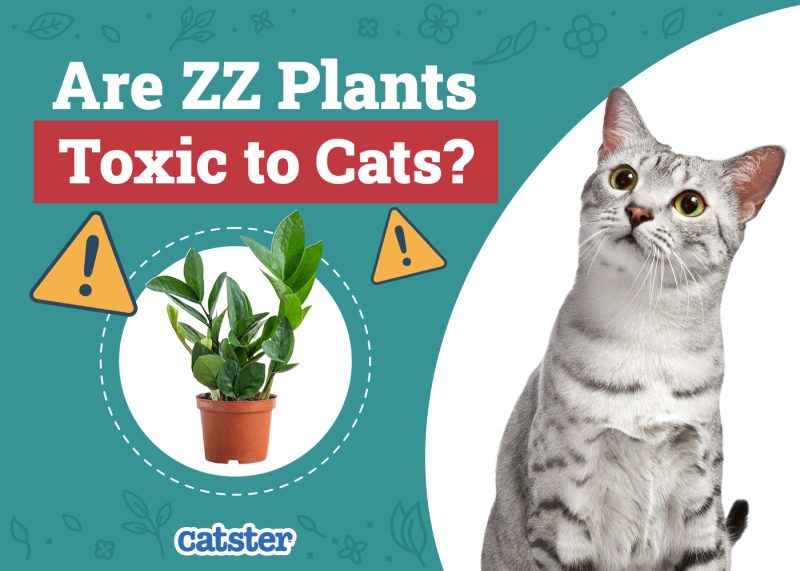The short answer is, no. A cat cannot give a dog parvovirus. Both species can become infected with parvovirus, but the virus that affects your cat is slightly different from the canine version, which can cause different problems.
In this article we will discuss feline and canine parvovirus, and the key differences between the two.

What Is Feline Parvovirus?
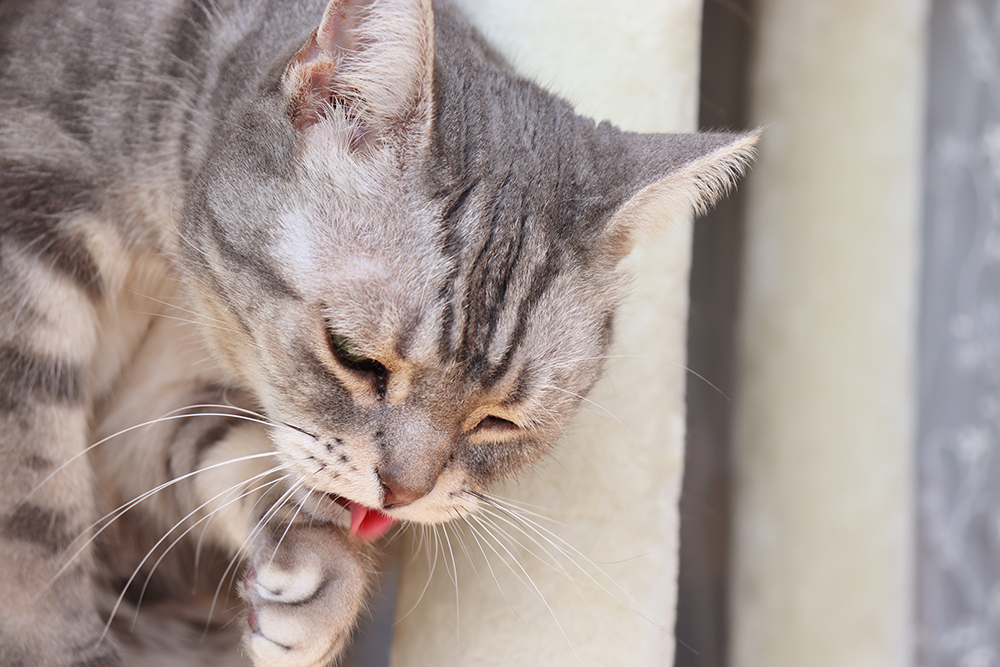
Feline parvovirus (FPV), otherwise known as Panleukopenia or Feline Distemper, is a highly contagious virus amongst cats only. Dogs and humans cannot become infected with panleukopenia, though some related species can, such as raccoons and minks.
The feline parvovirus attacks and kills, rapidly dividing cells of the body, such as cells of the bone marrow, lymphatic system, intestines, brain, and eyes. Because of this, developing and growing kittens are most commonly affected. Cats shed the virus in any kind of excretion and secretion, such as saliva, urine, and feces.
Similarly, canine parvovirus (CPV) is shed in infected dogs’ feces. CPV infects and kills cells of the small intestinal lining, lymph tissue, and bone marrow.
How Infectious Is Parvovirus?
Both feline and canine parvovirus are very infectious. Feline parvovirus can survive at room temperature for up to 1 year. Canine parvovirus can live indoors at room temperature for at least 2 months, and may be able to live in certain environments for months to even years. Both FPV and CPV can be transported on fomites (objects such as clothes, doors, pens), causing transmission to nearby animals.
After becoming infected, many cats will be subclinical, meaning they don’t develop significant disease. Others will become sick 2-7 days after contact with another infected cat. The infected cat can then shed the virus in all bodily secretions during active illness, and for up to 6 weeks in their feces, even after they recover.
Similarly, dogs will become infected 4-5 days after exposure, though it can range for up to 14 days. Infected dogs can only shed the virus for up to 10 days after recovery, much less than cats infected with FPV.
Luckily FPV can be easily killed with a dilute bleach solution, which makes cleaning fomites, houses, and hospitals fairly easy. On the other hand, CPV has, unfortunately, shown resistance to certain cleaning products. Therefore, disinfection protocol should be recommended by your veterinarian. As discussed earlier, both FPV and CPV can live for long periods of time in the environment.
Signs of FPV and CPV
With FPV, fever, lethargy, and anorexia are seen first. Cats then start to vomit and may have diarrhea, though not always. Only 3-15% of affected cats will develop bloody diarrhea. All of these will lead to severe dehydration, and can then progress to shock and even death. Mortality is highest in kittens younger than 5 months old.
In CPV, some dogs will have lethargy, anorexia, or fever for the first 1-2 days. Most dogs will then progress to having severe bloody diarrhea, vomiting, dehydration and shock, if left untreated.
Is your cat presenting any of these signs? We suggest you speak with a vet online.
If you need to speak with a vet but can't get to one, head over to PangoVet. It's an online service where you can talk to a vet online and get the advice you need for your pet — all at an affordable price!

Treatment for FPV and CPV
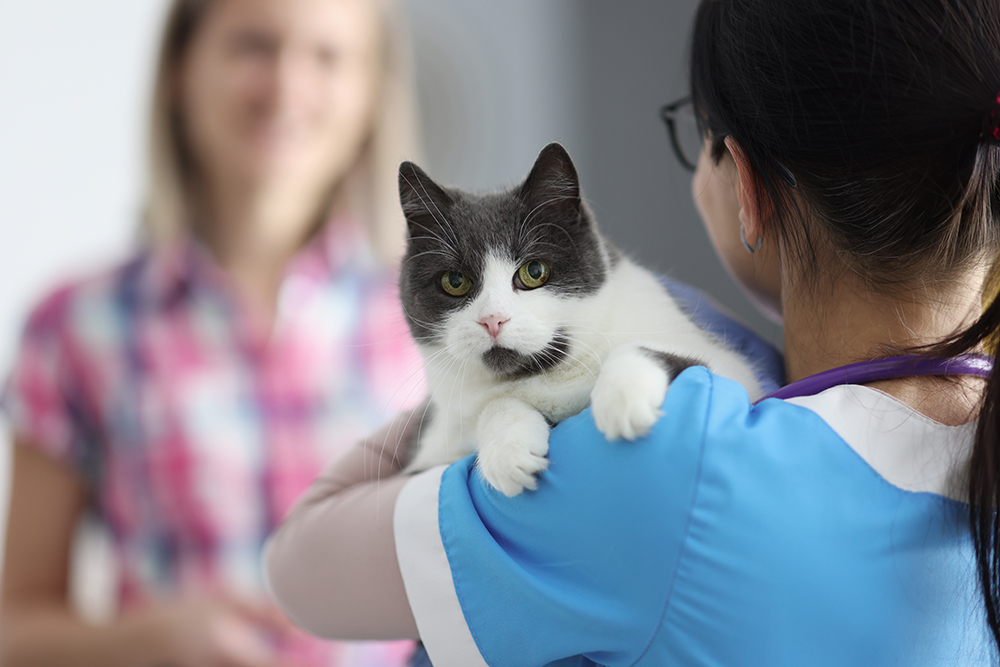
Both cats and dogs affected with parvovirus require aggressive fluid therapy, as severe dehydration develops quickly in both species. The affected animals will often require glucose, vitamin B12, and electrolyte supplementation as well.
Because both diseases cause nausea and vomiting, treating with anti-emetics (anti-vomiting medications) is also the mainstay of treatment. Persistent vomiting will worsen the already-present dehydration. Once vomiting is controlled, your veterinarian will want your pet to start eating as soon as possible. The sooner the infected animals start to eat without vomiting, the quicker their recovery period tends to be.
Both dogs and cats infected with their respective parvoviruses need to be isolated from other dogs and cats immediately. Both diseases are highly contagious, and others must be kept strictly away. In addition, both viruses can be carried on fomites, or inanimate objects, infecting others. This means that shoes, clothes, phones, pens, etc. can all carry the virus and infect other animals if care is not taken around them, and/or appropriate disinfectant measures are not taken.
Prognosis
Cats affected with feline parvovirus have a much higher mortality rate than dogs affected with canine parvovirus.
When hospitalized and aggressively treated, cats only had a 20-51% survival rate. However, studies may not be taking into account the aggressiveness of care provided to affected dogs compared to affected cats, financial restraints from owners, and how sick the dogs and cats were before they were brought to their veterinarian.
While many dogs still pass away from the disease, with aggressive therapy, survival has been shown to be close to 80%.
Prevention
Vaccines for both FPV and CPV are highly effective. Early vaccination of kittens and puppies, repeated every 3-4 weeks for the first few months of life, is recommended. Once a kitten has become infected with FPV, your veterinarian will not want to vaccinate them until they have completely recovered, if they do recover. Early prevention for both canine and feline parvovirus is much easier on the wallet and heartstrings.
Kittens and puppies should be started on vaccines by your veterinarian between 6-9 weeks of age and continued every 3-4 weeks until they are at least 16 weeks old. Vaccines should only be given by your veterinarian. Many vaccines are temperature and storage-sensitive, making store-bought vaccines potentially ineffective. Many veterinarians have had to be the bearer of bad news when telling an owner their beloved new pet has parvovirus when the owner has been giving store-bought vaccines.

Conclusion
While a cat cannot give your dog parvovirus, both species can become infected from their respective strains of the virus. Parvovirus is highly contagious in both animals, can be easily transported on fomites, and can live for weeks to months in certain conditions.
Aggressive therapy carries a good survival rate for dogs infected with parvo, however, the mortality rate for cats is still fairly high. Early and regular vaccinations by your veterinarian are the key to prevention. Once infected, animals can only be treated supportively, as there is no exact cure for either virus.
See Also:
- Can a Cat Get Parvo & Can They Get it From a Dog? Our Vet Explains
- Parvo in Cats: Causes, Care & Treatment (Vet Answer)
Featured Image Credit: Kachalkina Veronika, Shutterstock
